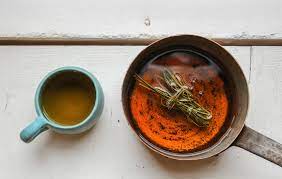Native Americans and Alcohol
Native American cultures, known for their deep connection with nature and tradition, have a rich history of unique beverages, both alcoholic and non-alcoholic. These drinks are more than just refreshments; they are a part of rituals, medicine, and daily life, reflecting the diversity and heritage of Native American tribes. Indians differ not only by alcoholic preferences, they don’t fall into many US law regulations, and thus can even offer financing at times of emergency need and provide tribal loans guaranteed even for bad credit.
Non-Alcoholic Native American Drinks
- Cedar Tea: A traditional beverage, known for its medicinal properties.
- Recipe: Boil water and add cedar leaves. Let it steep, then strain and drink. It is often used for cleansing and healing.
- Black Drink: A ceremonial tea made from the yaupon holly, consumed largely by tribes in the Southeastern U.S.
- Recipe: Dry and roast yaupon holly leaves, then steep them in hot water. This drink is used in purification rituals.
- Corn Tea: A staple in many Native American cultures, made from corn kernels.
- Recipe: Boil dried corn kernels in water, then strain. This tea is often used for nourishment and digestion.
- Chicha: A traditional drink in many South American Indigenous cultures, made from various grains, not only corn, but also from manioc root (cassava).
- Recipe: The process involves fermenting the grain or root, then boiling and fermenting again. It’s a social drink, often shared during community gatherings.
Alcoholic Drinks
Historically, many Native American tribes did not have alcoholic beverages before European contact, and the introduction of alcohol had significant impacts on these communities. However, there are traditional fermented beverages in some cultures:
- Tiswin: A type of beer made from corn or saguaro fruit, particularly by the Apache.
- Recipe: Ferment corn or saguaro fruit with water. The brewing process is intricate and often linked with ceremonial practices.
- Pulque: An ancient alcoholic beverage made from the fermented sap of the maguey (agave) plant, traditional to Central Mexico, including indigenous communities.
- Recipe: Extract sap from the maguey plant, then ferment it. Pulque is rich in history and often associated with rituals and myths.
Native American Attitudes Towards Alcohol
It is crucial to approach the topic of Native Americans and alcohol with sensitivity and understanding. The introduction of alcohol by European settlers had profound and often detrimental effects on Native American communities. This history has led to complex relationships with alcohol in various tribes.
Many tribes today advocate for alcohol-free lifestyles, focusing on sobriety as a means of cultural preservation and health. There are significant movements within Native American communities that promote recovery, wellness, and the revitalization of traditional practices and beliefs that do not involve alcohol.
In conclusion, Native American beverages, whether traditional teas or ceremonial drinks, play a significant role in the cultural and spiritual life of various tribes. They reflect the deep connection of these communities with the natural world and their ancestral heritage. Understanding these beverages provides a window into the rich and diverse world of Native American traditions and beliefs.
